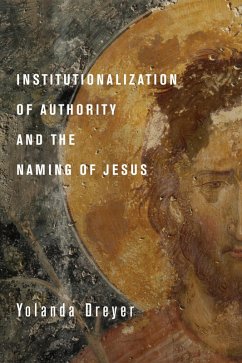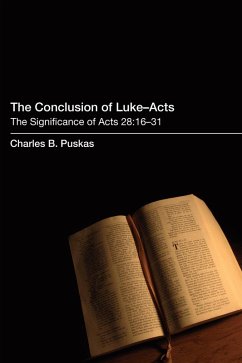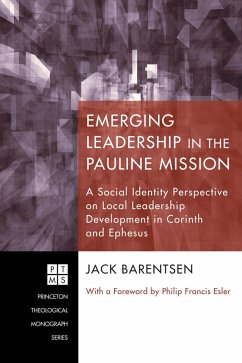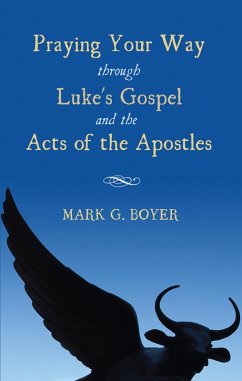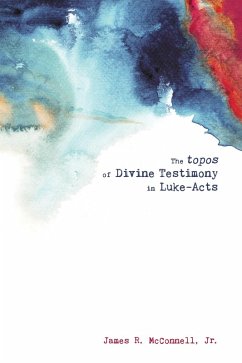
The Diffusion of Ecclesiastical Authority (eBook, ePUB)
Sociological Dimensions of Leadership in the Book of Acts
Versandkostenfrei!
Sofort per Download lieferbar
22,95 €
inkl. MwSt.
Weitere Ausgaben:

PAYBACK Punkte
11 °P sammeln!
The Diffusion of Ecclesiastical Authority explores the leadership of the church in Acts from a sociological perspective. Two primary models emerge from a sociologically informed investigation of first-century Greco-Roman and Jewish religious leadership: "manager-leader" and "innovator-leader." An examination of seven passages in Acts reveals that the leaders of the early church, although initially conforming to cultural expectations, are best described as innovator-leaders whose counter-cultural actions resulted in the empowerment of new leaders and the advancement of the gospel. Through the u...
The Diffusion of Ecclesiastical Authority explores the leadership of the church in Acts from a sociological perspective. Two primary models emerge from a sociologically informed investigation of first-century Greco-Roman and Jewish religious leadership: "manager-leader" and "innovator-leader." An examination of seven passages in Acts reveals that the leaders of the early church, although initially conforming to cultural expectations, are best described as innovator-leaders whose counter-cultural actions resulted in the empowerment of new leaders and the advancement of the gospel. Through the use of fictive kinship language, the voluntary sharing of authority, the fostering of a sense of mutual dependence on God as the common patron, and the redefinition of what is honorable, the leaders in Acts consistently enabled others to share authority in the church.
Dieser Download kann aus rechtlichen Gründen nur mit Rechnungsadresse in A, D ausgeliefert werden.





